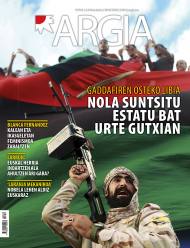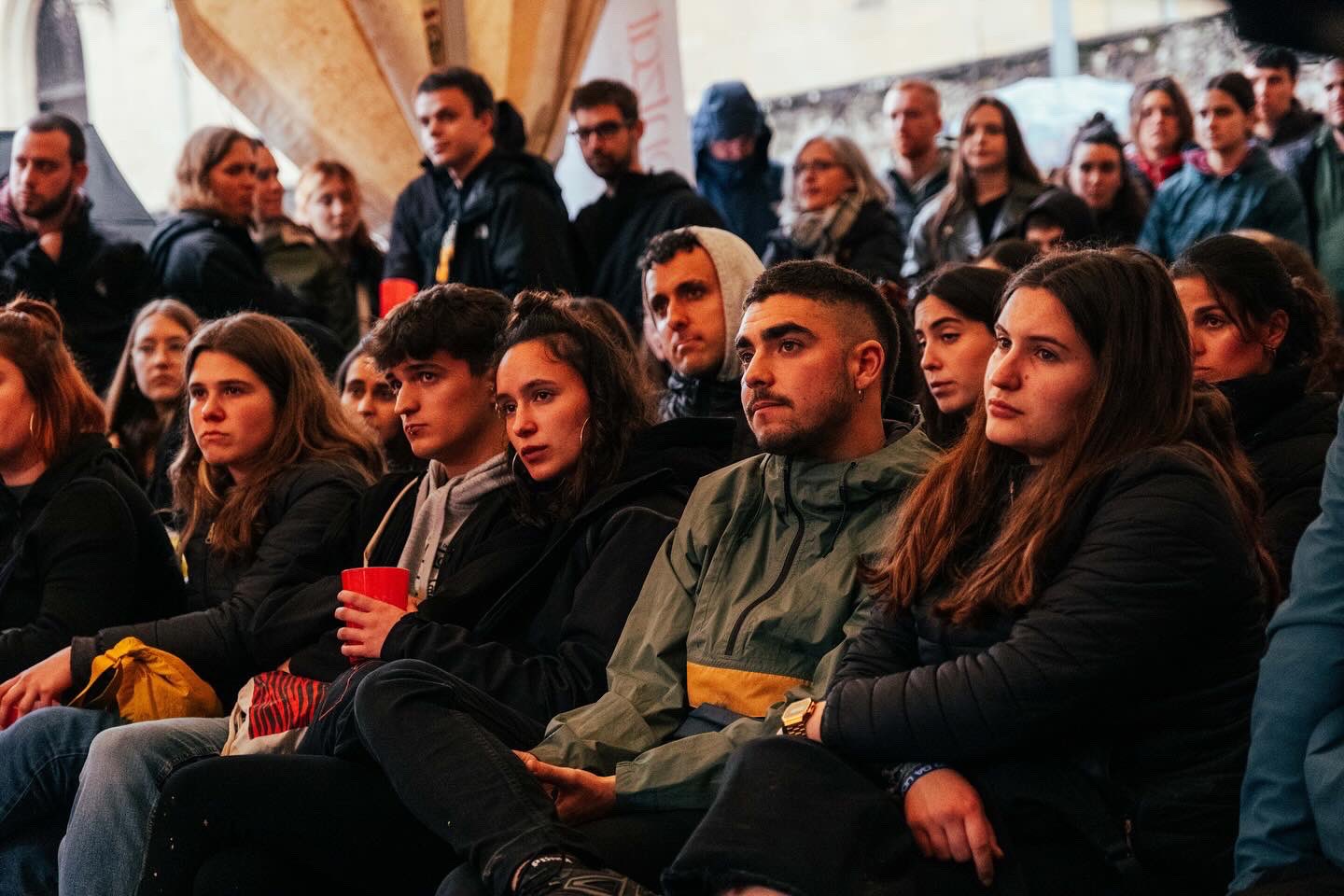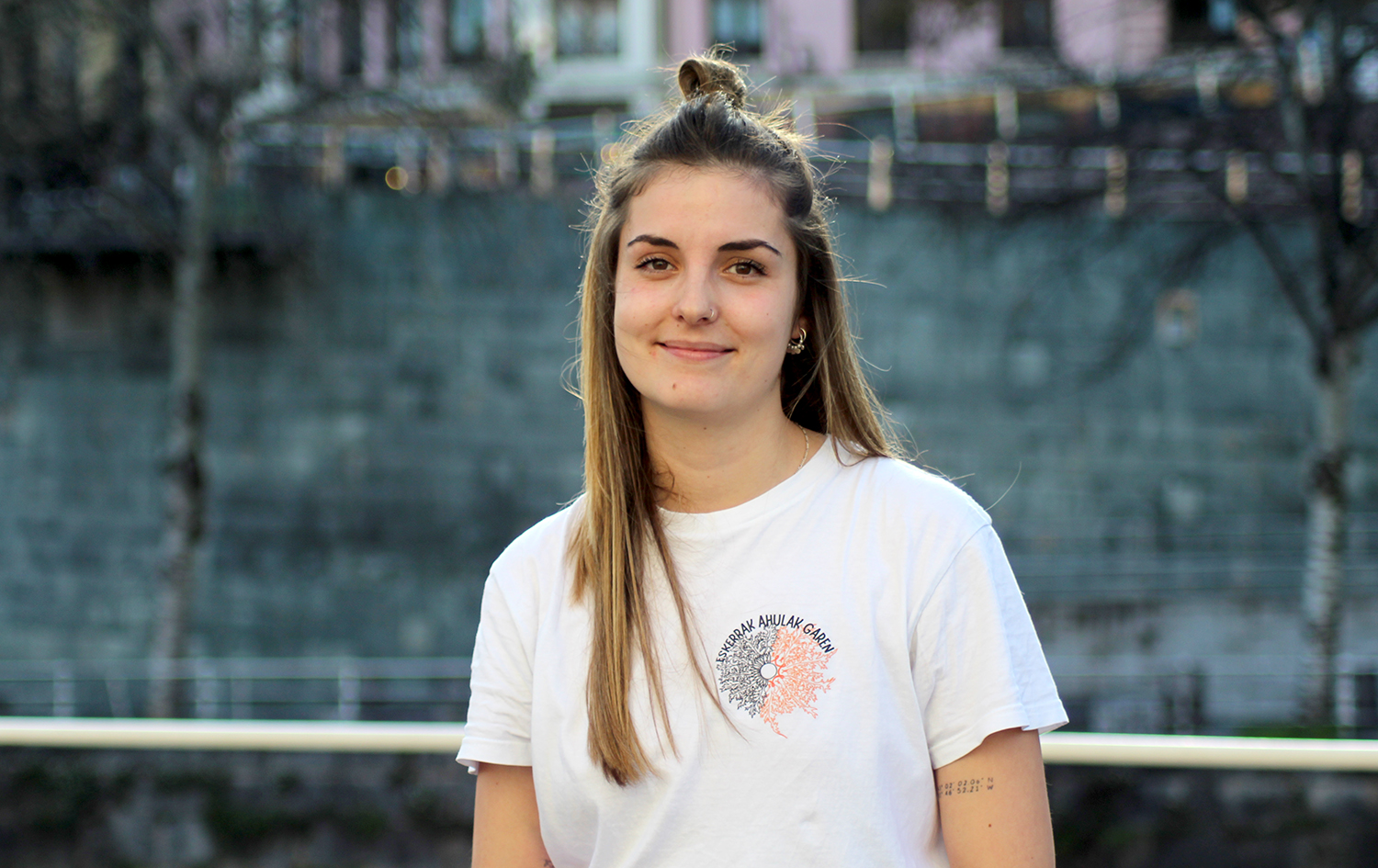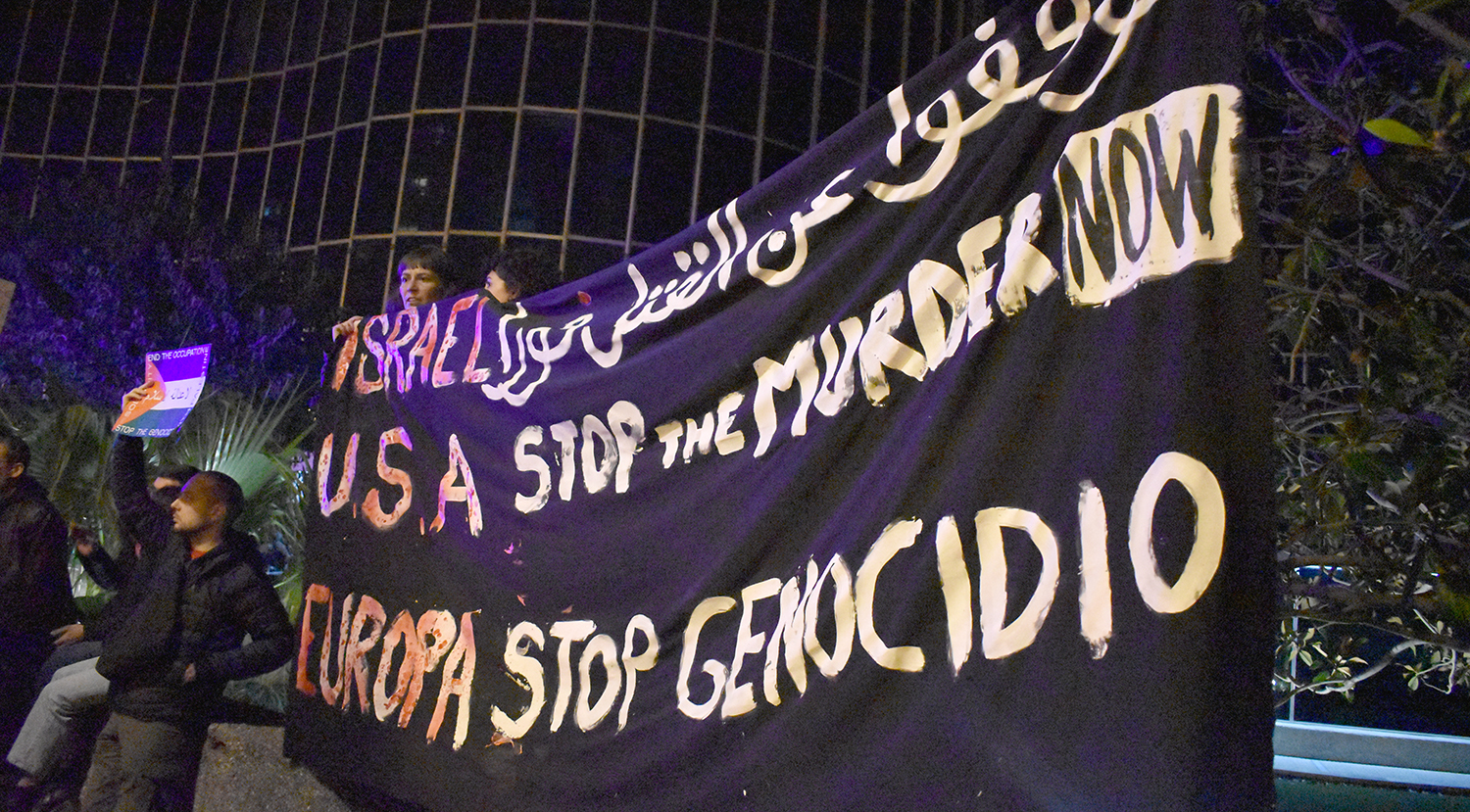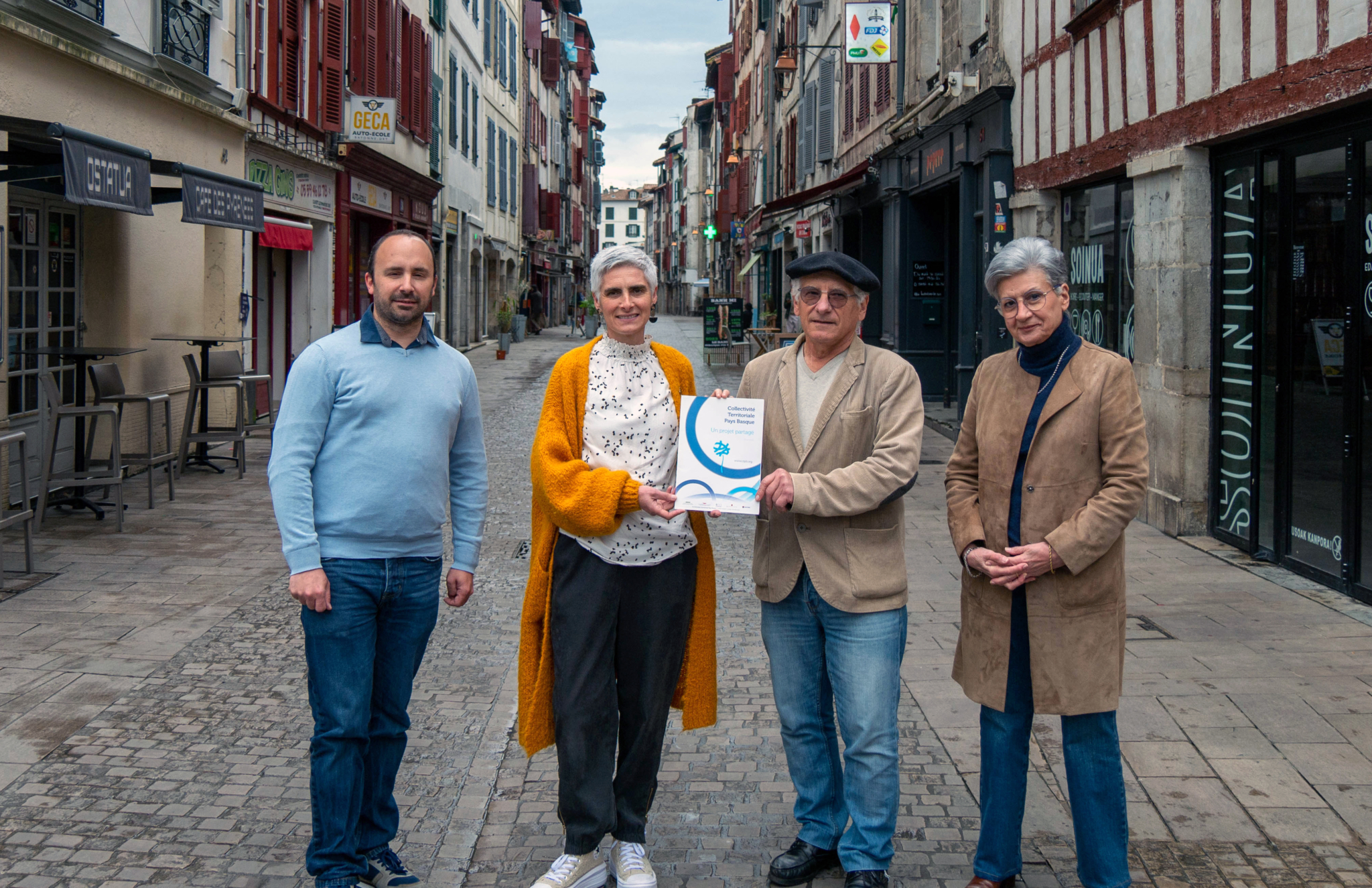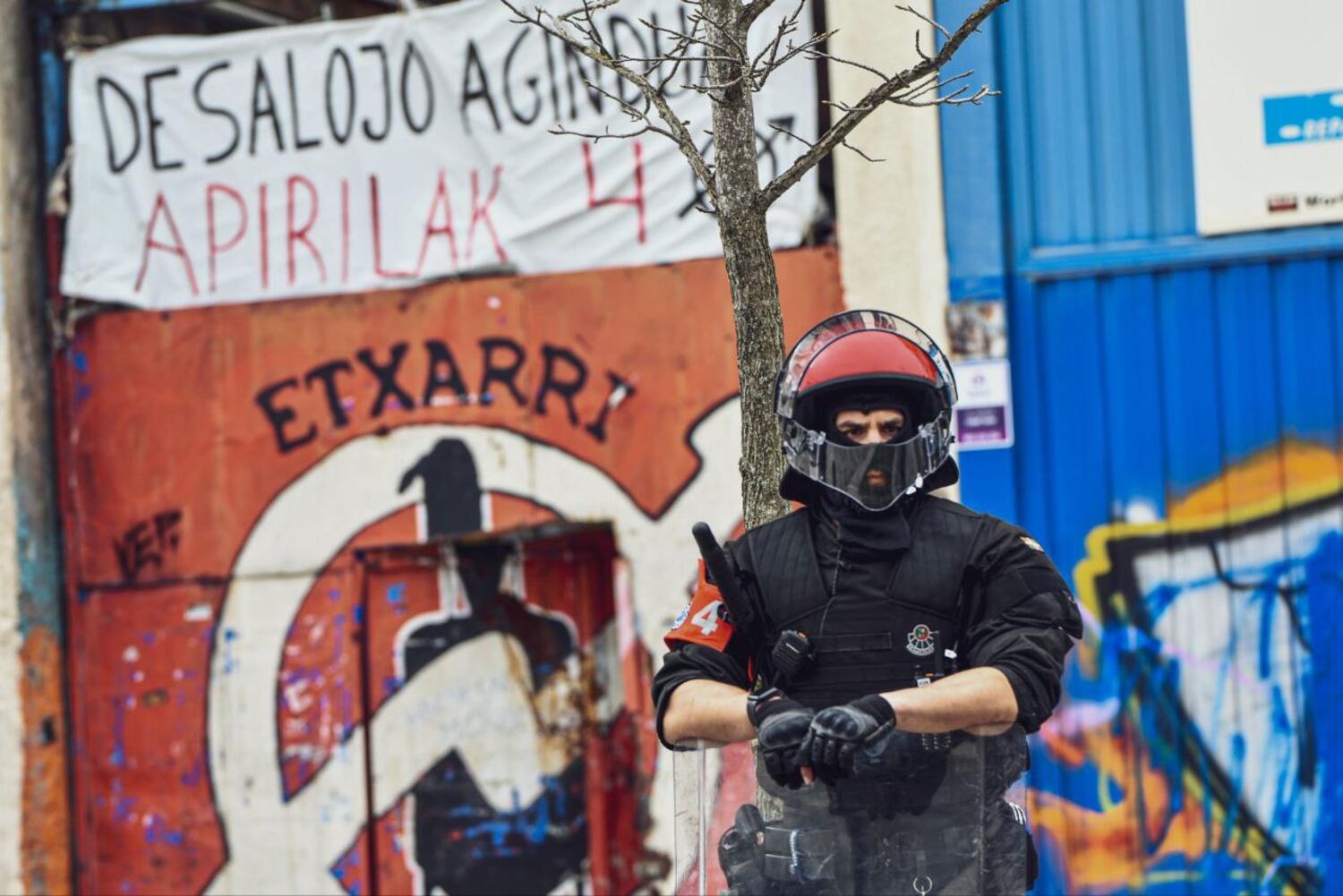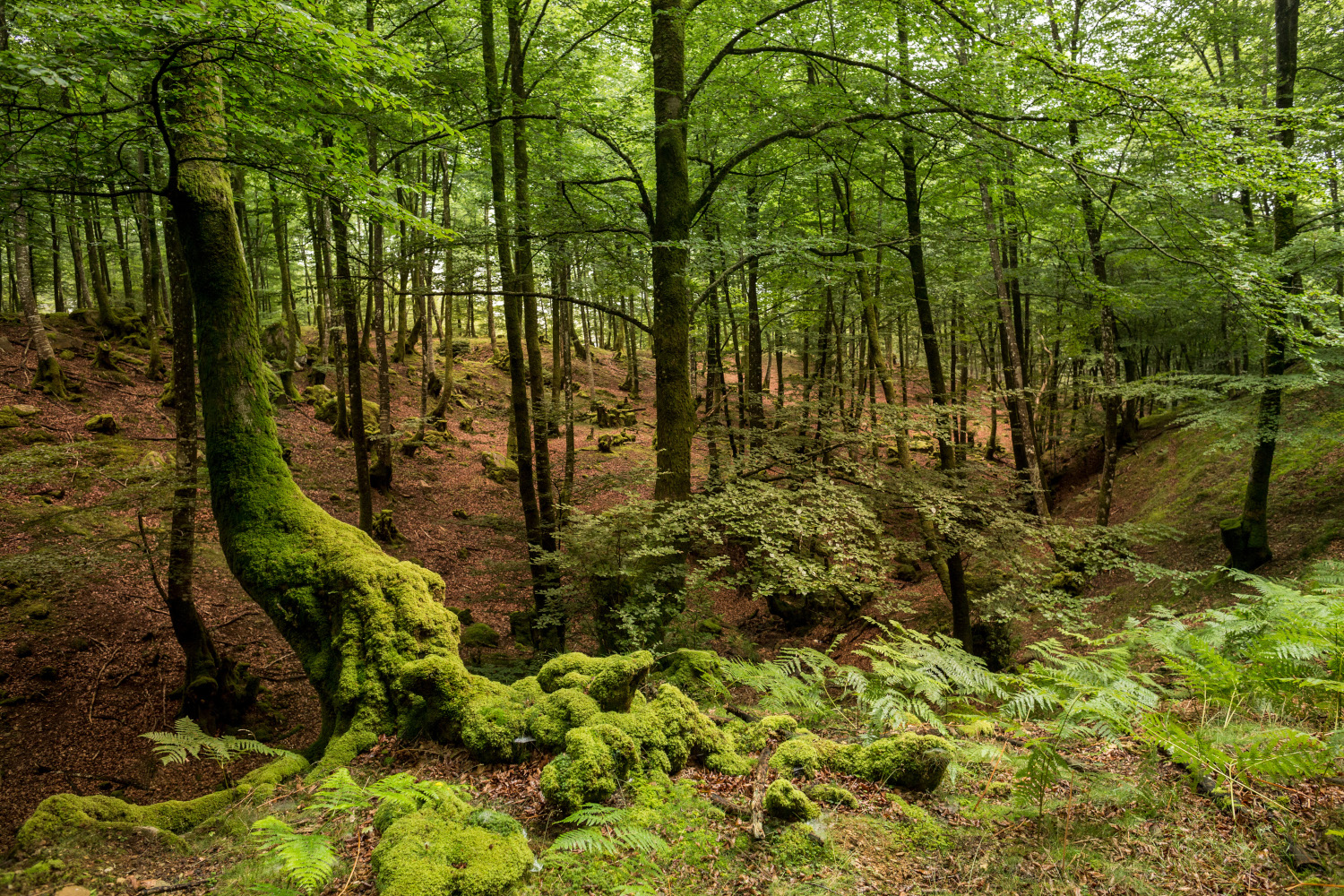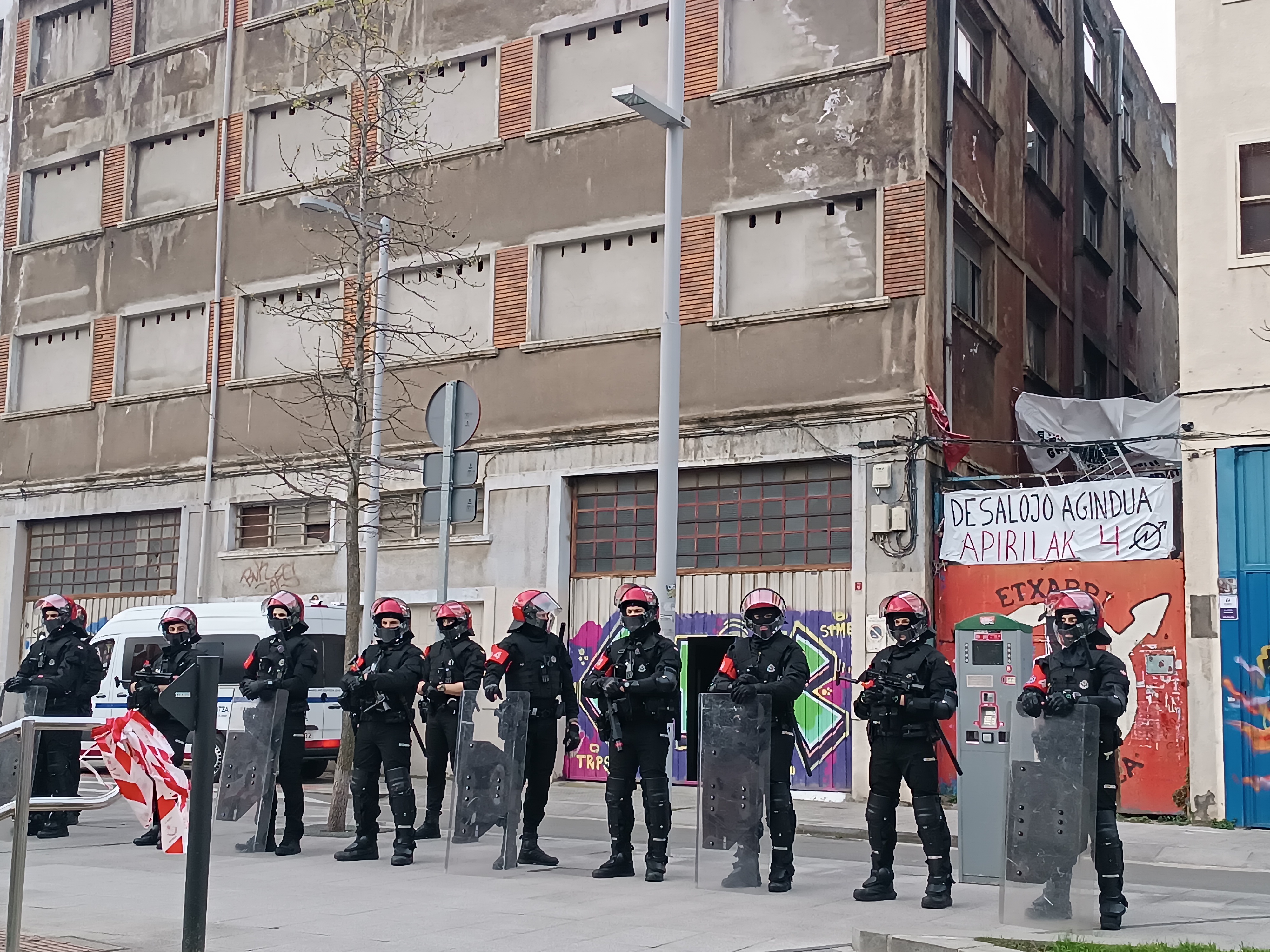"Alternative movements give practical solutions articulating radicality and pragmatism"
- Urruña, 1992. He has studied sociology, geography and animation cultural.Realiza a doctoral thesis on the militancy of alternative practices in Ipar Euskal Herria at the University of Pau: “Through the social practices that have been worked in this territory, I am analyzing how to carry out social transformation in the 21st century. I want to make a fairly global and coherent, humble approach.”
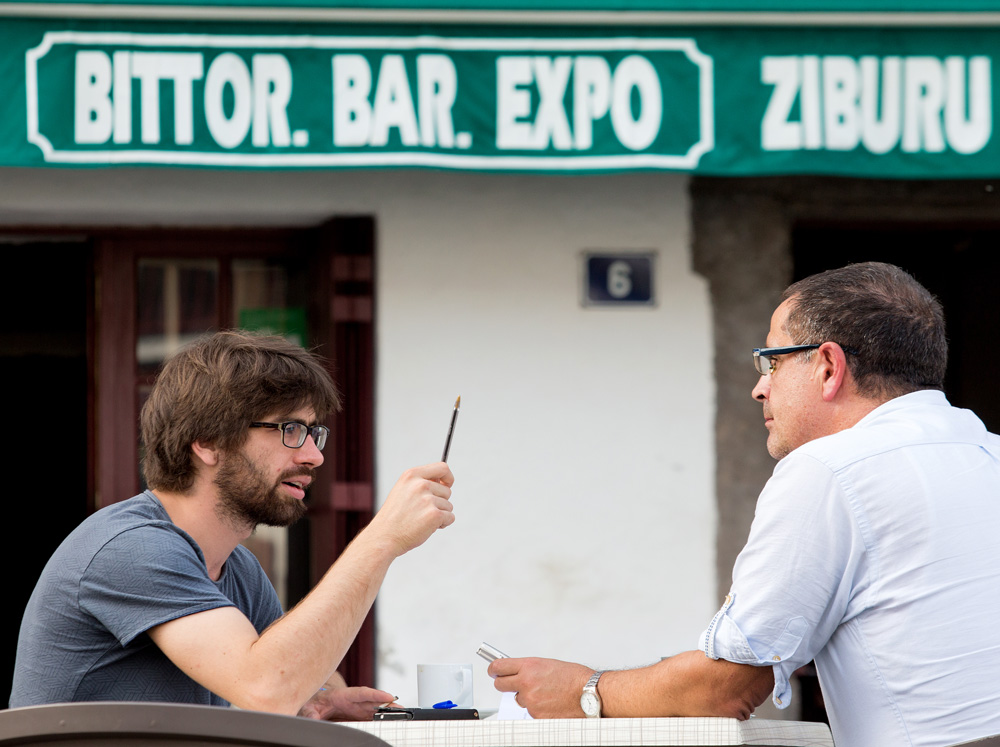
“We are facing a new political paradigm,” he says in his thesis. Where exactly?
A change of political paradigm is taking place around the world, especially in the developed countries of the north-west. Until recently, the channels or historical models used for social transformation, both left and right, have been exhausted.
What is the road to transformation today?
There are no clear roads. There was a time when there was a rupturistic model. The anti-colonialist axis, left or abertzale, was an initiative of change, spontaneous. However, the imagination of the revolution has been exhausted for a number of reasons. Here, for example, we live ETA's next time.
We're in the era of impasse.
Yes. And the new model of action is not going to happen suddenly, all of a sudden, it has come gradually. The abovementioned model [the one on the left] has been exhausted, and the other [the one on the right], which we call reformist, parliamentary, institutional, social democrat, is also blocked. An example of this is the case of Catalonia, where institutional transformations are blocked by the political games of the parties. It is not enough for you to be victorious in the institutions in order to be able to carry out your struggle. In Hego Euskal Herria, the Abertzale left had impressive electoral results [in Gipuzkoa, EH Bildu], but how did it influence the transformation? To achieve profound transformations, it is not enough to take the “power” of institutions. There is something to think about.
“Concrete collective actions are being filtered to provide concrete solutions to the demands. They’re simple but real and they’re reaping great success.”
We live in a time of lost illusions. How to open new roads?
For from many paths and actions. The end of the story was mentioned a long time ago, others say that people are now disillusioned. They want us to believe that we are at the end of ideology. Margaret Thatcher said: “The news nom alternatives / There is no alternative to our model”. The beginning of the title of my thesis says “The news alternatives”. Because I see that in the last ten years, new opportunities are developing all over the world. Concrete collective actions are being filtered to provide concrete solutions to the demands. They're simple but real and they're reaping great success. The Villes network in transition and the movement as a witness. Attention is drawn to the concentration in the Basque Country and especially in Iparralde: SEASKA, Euskal Irratiak, Euskal Herriko Laborantza ganbara, Eusko moneta, etc.
What do they show?
A lot of things. To begin with, militantism is not dead. That is very important. People are still engaged in getting involved, but they believe that social transformation can be done in a different way.
But that, perhaps, is the impression of people living in a bubble. Most of them live according to the capitalist and consumer model. Here, the majority vote on the right. Within the paradigm there are paradoxes.
OK. A clear diagnosis “most people live comfortably or work in very precarious conditions, but consume in major commercial establishments”. However, how does it do it to transform this situation? The answers or modes are not eleven. Either we continue to work on the “dream of the great night,” or we have waited for a sudden unblock, and we continue to do this and that to win in the elections, we don’t know what to win.
Municipal elections will be held in Hego Euskal Herria shortly.
Well, if you lose on that election night, you don't lose just that night, you lose every day between the two elections. They will continue to build large shopping malls, etc. In contrast, if between the two elections you generate concrete practices, where people do not go to the department stores, for example, using another currency [Eusko], where other foods are consumed (Idoki)... He has not won the elections, but every day he is working on his alternatives. In Iparralde we are in that, looking at all of Euskal Herria, building concrete alternatives. In addition, this dynamic contributes to increasing the results in the votes of our political options. Because, what are the results of the people's votes for, if you don't have a cultural association, if you don't have a ikastola, if you don't build a social network?
The Single Commonwealth of Iparralde is hereby established. How can these practices be reconciled with the work of the new institution?
The relationship between grass-roots movements and institutions must be well understood. If you want to win a battle, you have to work and combine different ways and forms. It would be a mistake to think that a single channel or mode should be used. We can't put all the eggs in the same basket, because if the ccon falls, it loses everyone. The institution of Iparralde will be [Colegio Vasco] if it is built through the relationship between popular movements and institutions. That's their strength. We have got into an institutional process, the limits of this institution are enormous, it has very little competence, really, but that is all. That is what the States themselves decided a long time ago: because of the economic variable, all the institutions are limited. States have transferred competences to private areas or companies. Who manages the economy? Who is organizing world wars?
So?
In other words, the Basque School or other local institutions in the Basque Country cannot prevent the installation of IKEA. Or help to assemble here the point of sale by taking advantage and working the local wood. No institution can do so, even if the political option that is governing the institution is yours. Who can do that? So, today, only the practices of alternative movements can do so. The wrong idea that we have internalized through the current political culture is that to carry out social transformation we have gone through the public authorities, yes or no! Through the breaking political model or the Social Democratic reformist model. But we're wrong if we think that after taking power with the help of alternative models, we're going to transform the system. On the contrary, without going through the center of power, we have to demonstrate that militant alternative waves can transform the system. And we're already showing it. We can take the Basque currency as an example. Who has the competence of the currency? Nor do the States. It is owned by the central bank of the European Union. Here a group of citizens has taken over the use of a local currency. It's over.
We demand the official status of the Basque Country, but the President of the Basque Commonwealth, Jean-René Etchegaray, has no need to learn Basque.
It does not matter to me that Etchegaray does not learn Euskera, while I care that the population learns and uses it, both are not the same. We have a lot of fixations. Officialdom, it's one of them, it's an obsession. What does the official stand for? If I have to choose between the official and the actual practice of the Basque Country, without being an official, I will promote actions in favour of the practice. Let us suppose that the official status of the Basque Country is recognised, but that there is zero euros to develop a true linguistic policy. We have achieved the official status and live without content, without praxis and without speakers.
We are in the next time of ETA. After idealisations and frustrated illusions. The parameters of North and South are not the same either.
These are quite different situations. At Iparralde we have always had that debate: to see if we have to bring the strategies here adapted or for the whole of the Basque Country? Both contexts are different, but they are also different in the South. Can you bring the same strategy to Olite and Mutriku? The possibilities of the practices should be well understood depending on the territorial context and the moment. 40 years ago the practices and contexts are not current, they have to be adapted as best as possible.
This does not exclude the development of joint actions throughout the territory. Udalbiltza is there: this institution is a great opportunity, one of the current alternatives. In the time when Udalbiltza was founded, it had its location and functions, and today it can occupy a great space to carry out its confederal strategy. The motto of the People of Alternatives is: “If they don’t give us it, we create it.” This is an institution created by the people, it is an instrument and it must be exploited.
“Udalbiltza is a tool created by the people, and we must use it”
Some activities of the past have left their burden. The issue of prisoners is there. The Abertzale left is adapting to a new time. How can alternative movements help? It's also time for self-criticism.
The issue of prisoners is difficult. Because Paris and Madrid have the key to fix it. You can't build an alternative to that. The criticisms, on the contrary, are not directed to the alternative movement, but are directed to the left Abertzale. In this sense, the alternative movement provides practical solutions, articulating radicality and pragmatism. If we manage in this dialectic not to see those two poles as dichotomy – or total radicality or pragmatism – if we perceive a balance between them, we will find the way forward.
How do you see the activity of party policies both in the South and in the North?
In the South there is hardly any relationship between political forces. In the North, on the other hand, they are heard. Here there are agreements between the whole political spectrum, except the National Front (FN) and the Communist Party (PSF). There are agreements on Euskera, the Basque conflict and institutional activity. In Hegoalde there is much talk about the thinker Gramsci and the need for the Abertzale left to achieve political hegemony. The question is: How can agreements be reached on these points, even if they have reached such a hegemony?
What has the Catalan procés suggested to you?
What happened in Catalonia is very significant: the sovereign Catalans have acted in the Spanish countryside and according to their rules, and for a moment, when the game has reached a point, they have found the enormous obstacle of Spain. They have denounced Spain’s lack of democratic legitimacy, despite the fact that it is conducting a democratic process without violence against women. The acts have been massive and peaceful. In Europe, this type of movement has never been seen, depending on the size of the territory. However, all three have been intercepted by force. We Basque citizens must receive concrete lessons from this process.
For example…
The PNV and EH Bildu have to internalize and value the path that their politicians have taken. Are you willing to go to where you've left? The Catalan process must also make us reflect on the path that we have to take if we come to such a situation.
To begin with, how can we reach a situation similar to that which has occurred in Catalonia? Can the sovereign Basque process be carried out?
That's the question. How to get there? And once there, how do you start? I think that can be done. But for that, it's important to change our militant culture. Why? Because times have changed, because potentialities and ways of working them have also changed. There must be a change in political culture in all progressive forces. Firstly, we need to analyse each territory and context well in order to achieve the complementarity of each of them in the light of the many initiatives. It's the only way. There are no magic recipes. The only way to win is to understand and accept the diversity of ways of acting.
Indartsua, irribarretsua eta oso langilea. Helburu pila bat ditu esku artean, eta ideia bat okurritzen zaionean buru-belarri aritzen da horretan. Horiek dira Ainhoa Jungitu (Urduña, Bizkaia, 1998) deskribatzen duten zenbait ezaugarri. 2023an esklerosi anizkoitza... [+]
The Leioa School of Education was full of students last Wednesday because Samantha Hudson was coming. She is a transgender Mallorcan artist, singer and influencer born in 1999. The star of the People Singing Encounters had an endless line to give selfies and autographs, and his... [+]
Gozamen aparta bezain deskribatzeko zaila dakar, norbaiten hitzak irakurri edo entzun ostean, zera pentsatzeak: “Horixe zen neu aurreko hartan azaltzen saiatu nintzena!”. Idazlea eta itzultzailea da María Reimóndez, eta galegoz aritzen da, hizkuntza... [+]









